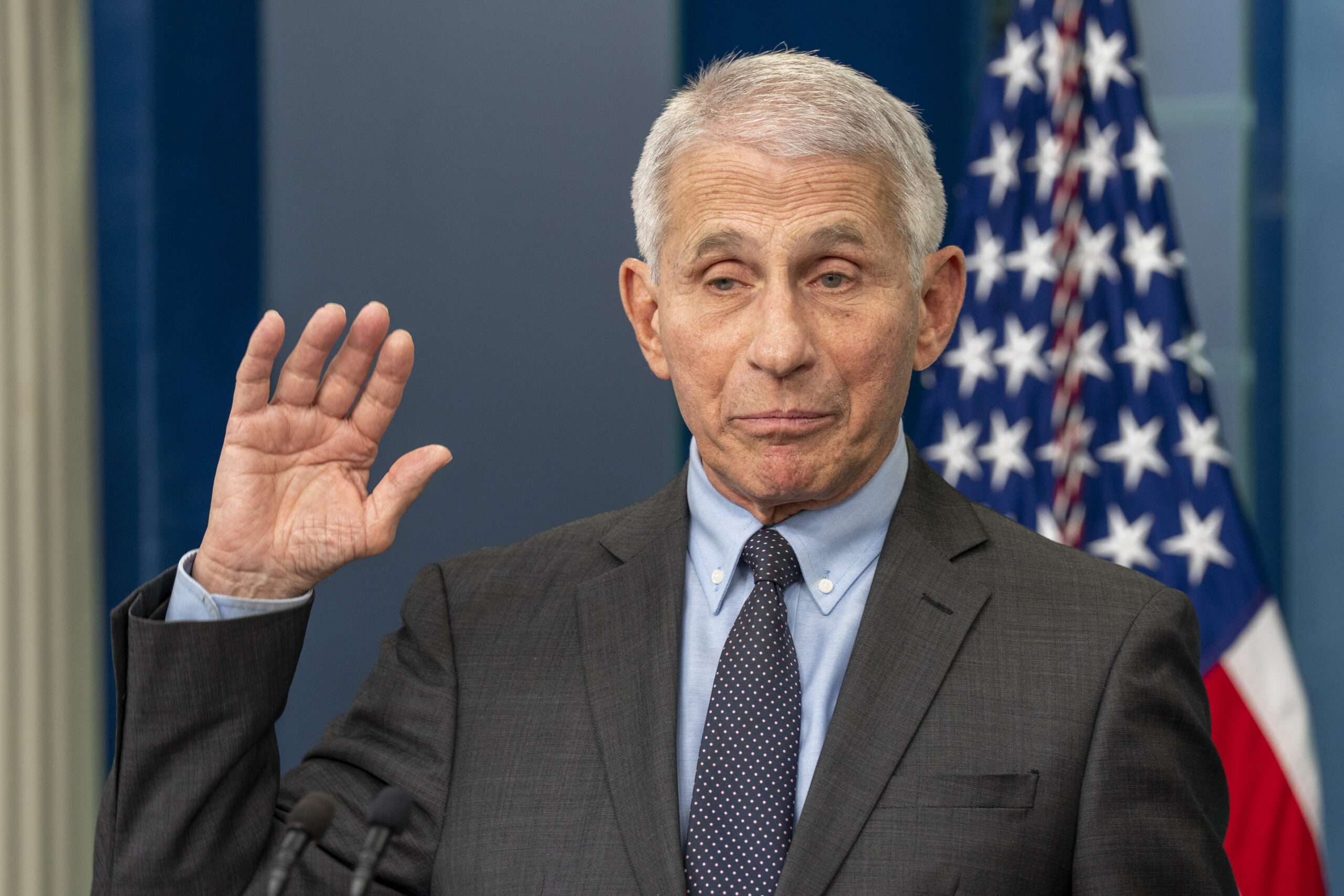Inside the CDC’s Campaign to Police COVID Speech

For years, various branches and levels of the federal government tried their darndest to grab more control of what could be said on social media. Sex trafficking, election integrity, hate speech, Chinese influence—all served as fodder for legislation, regulation, or executive action geared toward seizing the means of content moderation, with some degree of success.
But it was the COVID-19 pandemic that really did the trick—as my colleague Robby Soave details in Reason‘s March 2023 cover story.
During peak pandemic times, “the federal government shaped the rules of online discussion in unprecedented and unnerving ways,” Soave writes. Some of this was confirmed recently by documents that Twitter CEO Elon Musk shared with journalists. Soave uncovered evidence of similar shenanigans at Facebook:
According to a trove of confidential documents obtained by Reason, health advisers at the CDC had significant input on pandemic-era social media policies at Facebook as well. They were consulted frequently, at times daily. They were actively involved in the affairs of content moderators, providing constant and ever-evolving guidance. They requested frequent updates about which topics were trending on the platforms, and they recommended what kinds of content should be deemed false or misleading. “Here are two issues we are seeing a great deal of misinfo on that we wanted to flag for you all,” reads one note from a CDC official. Another email with sample Facebook posts attached begins: “BOLO for a small but growing area of misinfo.”
These Facebook Files show that the platform responded with incredible deference. Facebook routinely asked the government to vet specific claims, including whether the virus was “man-made” rather than zoonotic in origin. (The CDC responded that a man-made origin was “technically possible” but “extremely unlikely.”) In other emails, Facebook asked: “For each of the following claims, which we’ve recently identified on the platform, can you please tell us if: the claim is false; and, if believed, could this claim contribute to vaccine refusals?”
Facebook, Twitter, and other tech companies were under extreme pressure to acquiesce to government demands on this front. In July 2021, President Joe Biden accused social media platforms of “killing people” by not stopping the spread of COVID-19 misinformation. And he was far from alone in using this sort of rhetoric.
All of this followed years of political leaders excoriating tech companies for not stopping the spread of everything from sex ads to Russian memes to white nationalist rhetoric. Throughout 2020 and 2021, tech executives were routinely hauled before Congress to answer absurd questions about their processes. Bill after bill sought to take away their protection from civil liability for things that users posted, to micromanage their algorithms and the way they handled specific sorts of content, to modify antitrust laws in ways that would cut into their business, etc. Facebook and Google both faced federal lawsuits.
So even if Centers for Disease Control and Prevention (CDC) authorities didn’t directly order Twitter and Facebook to do their bidding, you can imagine how tech executives might have felt they had little choice.
“If you look at it in isolation, it looks like [the CDC and the tech companies] are working together,” Jenin Younes, litigation counsel for the New Civil Liberties Alliance, told Reason. “But you have to view it in light of the threats.”
More from Soave:
Facebook is a private entity, and thus is within its rights to moderate content in any fashion it sees fit. But the federal government’s efforts to pressure social media companies cannot be waved away. A private company may choose to exclude certain perspectives, but if the company only takes such action after politicians and bureaucrats threaten it, reasonable people might conclude the choice was an illusion. Such an arrangement—whereby private entities, at the behest of the government, become ideological enforcers—is unacceptable. And it may be illegal.
Read the whole piece—”How the CDC Became the Speech Police”—here.
FREE MINDS
Federal appeals court judges seemed skeptical of the government’s claims regarding FOSTA. The Allow States and Victims to Fight Online Sex Trafficking Act (FOSTA), passed in 2018, criminalizes owning, managing, or operating an “interactive computer service” with “the intent to promote or facilitate the prostitution of another person.” U.S. attorneys say this doesn’t target protected speech, but illegal conduct—that it is essentially a law against aiding and abetting prostitution or sex trafficking. But at a hearing last week, judges with the U.S. Court of Appeals for the District of Columbia Circuit didn’t seem to be buying the government’s logic:
“In my mind, it’s not an aiding-and-abetting law. We know how to write ’em when we want to,” Harry Edwards, one of the three judges on the panel, said during the hearing. “This doesn’t look like anything that I understand to be an aiding-and-abetting law.”
“That immediately tells me the government’s got great concern that the statute, as actually written, has problems—so let’s make it something that it’s not,” Edwards continued. He characterized U.S. attorneys’ reasoning as “let’s call it aiding and abetting, and maybe we can cause the court to believe that the reach of the statute is limited because we’ve called it something that it’s not.”
(“We disagree with the position you just laid out, that this is not an aiding-and-abetting statute,” a lawyer for the government responded.)…
Judge Patricia Millett pushed back on the government’s claims that FOSTA didn’t criminalize advocating for legal prostitution.
“If someone actively promotes on their website the legalization of prostitution…how is that not [promoting prostitution]?” she asked.
“Because it’s just promoting prostitution in general, as a concept,” a U.S. attorney replied.
“No, it’s not,” Millett interrupted. “It says, I want—here’s all my friends who are prostitutes…here’s 20 of them, I want to make it legal for them to engage in prostitution.…How does that not promote the prostitution [of another person]?”
Reason talked last week to one of the lawyers for the team challenging FOSTA in court. Read more from that interview here.
FREE MARKETS
An emergency hearing yesterday sought to stop Illinois’ ban on assault weapons from taking effect. More from WLS Chicago:
At least three lawsuits have already been filed, with the latest one from the Illinois State Rifle Association. They are the first legal oppositions to Illinois’ new ban on assault weapons.
The first two suits were filed in state court. This latest challenge to the state’s assault weapons ban was filed in federal court by the Illinois State Rifle Association.
In the Effingham County case, the attorney said his lawsuit is more so about the way this law was adopted, saying it is unconstitutional
The suit was filed by Tom DeVore, last year’s Republican nominee for Illinois attorney general, on behalf of hundreds of plaintiffs.
He’s also seeking an immediate temporary restraining order.
The hearing yesterday was in the DeVore case.
QUICK HITS
Former Trump OMB Director, Mick Mulvaney, to @thedispatch: “The truth of the matter is that the first two years of the Trump administration, when the Republicans had the House and the Senate, we raised spending faster than the last couple of years of the Obama administration.” https://t.co/he0QDOEkSH
— Stephen Hayes (@stephenfhayes) January 18, 2023
• “The U.S. is gearing up to announce a major new weapons package for Ukraine on Friday,” Politico reports. “While the next tranche will include additional artillery, ammunition and armor — likely Stryker armored combat vehicles — the U.S. is not expected to sign off on American M1 Abrams tanks, said the people, who spoke on condition of anonymity to discuss the talks ahead of an announcement.”
• A measure under consideration in Montana “would interpret the state’s constitutional right to privacy to mean that it does not protect the right to an abortion, a move that would echo others in several states to severely restrict or ban abortion.”
• “Can the Fourth Amendment survive digital surveillance?” TechFreedom’s Corbin Barthold asks.
• Mother Jones looks at “how a notorious jail failed a disabled transgender inmate.”
• “Whether a person is a ‘noncitizen’ will now be printed on driver’s licenses and state IDs under a controversial law that was just signed by Ohio Gov. Mike DeWine,” reports the Ohio Capital Journal.



















You must be logged in to post a comment Login